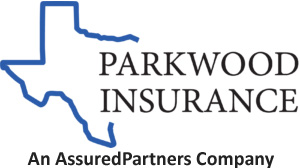When you have a car, auto insurance is a necessary expense – maybe even a necessary evil! But when you’re looking at how much coverage you need, there’s a difference between “what’s legally required” and “what will protect your financial future.”
Here’s what you need to know about car insurance: what’s required, what your auto insurance options are, and how to make the right choices!
Required Coverage: Automobile Liability Insurance
The bottom line: a minimum amount of liability coverage is required by law, but it’s a really good idea to buy more.
In Texas, every automobile must carry a minimum amount of liability insurance, usually referred to as “30/60/25.”
In general terms, auto liability insurance is designed to pay for the people and things you hit with your car, so that you don’t have to pay out of pocket. The required legal minimums are $30,000 per person, $60,000 per accident, and $25,000 for property damage: 30/60/25 for short. Automobile liability insurance does not have a deductible, and it only covers injuries or damages to third parties and their property, not to the driver or the driver’s property.
This means that if you are at fault in an accident, your auto insurance company will pay:
- Up to $30,000 per person for bodily injury medical expenses (for other people)
- Up to $60,000 total per accident for bodily injury medical expenses (for other people)
- Up to $25,000 for property damage (for the other person’s car, building, and so on)
Bodily injury liability covers an at-fault driver so they don’t have out-of-pocket expenses for others’ emergency and ongoing medical expenses, loss of income and funeral costs. It also helps cover the policyholder’s legal fees if the accident results in a lawsuit.
Property damage liability helps cover costs such as repairing a home or retail establishment damaged by a vehicle crash and repairing the vehicles of other drivers involved in the accident.
Keep in mind that for most people, it makes good financial sense to buy more coverage than the legal minimum, because you’re still responsible for all damages over and above your coverage limits.
That’s because if you’re in an accident, the minimum liability coverage amounts might not be enough to pay all of the other driver’s costs, and they can sue you for any bills they have left after the insurance company’s 30/60/25 payout. This can include repair bills, medical expenses, lost income compensation, and legal fees. Since medical bills and auto body repair costs can be very expensive, we highly recommend that you increase your auto insurance coverage limits beyond what Texas requires. This is especially important in Frisco, where a typical vehicle’s value is much higher than the state average.
Without adequate liability coverage, you may have to pay these costs out of your own pocket, and you could lose your home, savings or investments to cover the damages – ruining your personal finances for years.
Recommended Coverage: Collision, Comprehensive, And More
The liability insurance helps to take care of other people involved in an accident, but it doesn’t pay to repair or replace your car or to treat your injuries. For that, you need some add-ons.
Collision Insurance provides coverage to repair or replace your vehicle if has been damaged in an accident, regardless of fault, and whether the accident involved another vehicle or a stationary object.
Comprehensive Insurance covers expenses to repair or replace your car from damage caused outside of an accident – such as theft, fire, falling objects vandalism and weather damage (handy for Texas hail season!).
Un-insured & Under-insured Liability Insurance (UM/UIM) protects you and your car if you are injured by another party who wasn’t carrying enough liability insurance to cover your medical expenses, car repairs, and so on – even if the person who hit you didn’t have any insurance at all. This coverage will help protect you and your loved ones from the distracted driver that’s texting at the wheel, the make-up-applying fast lane driver, and the reckless road rager – because we can’t control who else is on the road or how much insurance they have!
Personal Injury Protection covers your and your passengers’ medical expenses after an accident. If you lose time at work because of your injuries, this policy may also cover lost wages.
Optional Auto Insurance Coverage
Finally, there are a few insurance options that you may be interested in, depending on your needs and lifestyle. None of these are included in full coverage.
Medical Payments Coverage provides a limited amount of money to pay for you and your passengers’ medical expenses if you are injured in an auto accident.
Emergency Road Service Coverage to provide assistance and towing if you break down.
Customized Parts and Equipment Coverage for any aftermarket parts you’ve added to your car, like custom lighting, sound systems, and lift kits.
Rental Car Reimbursement Coverage to cover the costs of a rental car while your vehicle is being repaired as part of a claim.
Gap Insurance Coverage will repay what’s left on your car loan, above the value of your car, if your car is totaled in a covered accident. That means if you’re underwater on your car loan, you won’t be stuck paying off a car that you can’t even use.
Common Exclusions
The front page of your insurance policy, called the “declarations page” or “dec page,” has most of the important information you need, including the exact name of your insurance company, your policy number, and the amount of each of your coverages and deductibles.
You’ll want to pay special attention to who is covered under your policy and to the list of exclusions that your policy doesn’t cover. This might include:
Named Driver. By default, auto insurance is attached to a car rather than to a person, so if your neighbor borrows the car to pick her kid up from daycare, the car is still insured. Some polices only cover household residents who are specifically named on the policy, but we do not recommend this type of policy.
Excluded Driver: This excludes coverage for people specifically named in an endorsement attached to your policy.
Business Use: This excludes coverage if you use your car for business, such as delivering pizza or moving supplies.
Racing: Excludes coverage if you use your car in a racing event.
Intentional Acts: Excludes coverage for losses that were intentional. You can’t deliberately drive your car into a lake and then make an insurance claim!
Finding The Right Car Insurance For You
While price is certainly important, the key to finding the best deal on your auto insurance is finding the coverage that best meets your specific needs. This will depend on the value of your assets, how much risk you’re comfortable with, and what protection you want.
You should buy as much coverage as need to make sure your assets are protected in the case of an accident. If it’s more important to you to get the cheapest protection, then just bear in mind that your assets can be put at risk. An expert independent insurance agent can help walk you through which policy add-ons, and what level of protection, makes the most sense for you. We’re here to make finding your policy hassle-free!
Parkwood Insurance has been serving Frisco since 1998. We offer personal and commercial insurance to customers throughout the great state of Texas, specializing in auto, home, commercial and life insurance.



